I have several nieces and nephews. The eldest of my nieces is thirteen and will turn fourteen next month. An 8th grader full of spunk and sass. She is gorgeous inside and out. She and I, along with some other girls her age, were in a full blown conversation about anime, Afro Samurai, and a bunch of other ridiculously nerdy things the other day. My heart was on swole as I thumbed through one of the girl’s sketch books looking at her characters and “how to draw manga” practice pages. The thirteen-year old inside of me was laughing, dancing, and crying at the same time. My GOD! Is this real? Everything that I got picked on for loving is freakin’ cool now?! In the late 80s and 90s having these interests in my neighborhood meant that you’d be called worse than just a nerd (which is cool now), but you’d be called “white.” Living in the ‘hood this was one of the worst insults ever. White was associated with stuck up and hurtful, lame, racist. White was not what you wanted to be. No. No Black kid on my block wanted to hang with the Oreo (Black on the outside. White in the middle).
Times have changed a little bit and I’m glad to see it. I didn’t have many friends who were admittedly into the things that I cared about. Mainly, I just kept it to myself and stuffed my nose in as many books as I could — looking for that girl like me.
My niece is thirteen. She is coming of age. Many of us remember thirteen. We remember the tides turning, the hormones raging, the one million and one questions that adults asked us and that we asked ourselves and no one seemed to have answers. Some of us also remember the books. The books that helped us through. I’m not going to lie, I had about 12 copies of “Are You There God? It’s Me Margaret” that I plowed through between the ages of ten and fourteen. I could have made a life-sized paper-mache Judy Blume out of all of those copies and the tears that stained each page. In honor of all girls coming of age, in honor of Women’s History Month, in honor of Black Girl Magic I submit to you my favorite coming of age stories for women of all ages. Truth is, no matter how old you are there is always that kid inside of you who is 13 going on 30.
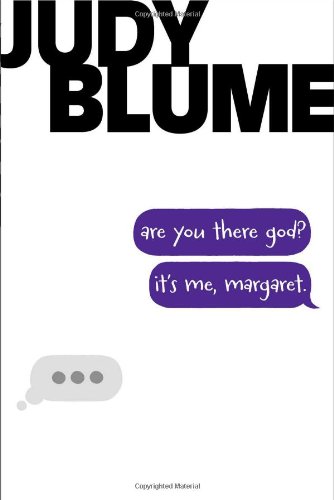
1. Are You There God? It’s Me, Margaret by Judy Blume
“We must, we must… we must increase our bust!”
Listen. I need this here and I need to just get it out of the way in order to get to the rest of the list. This book isn’t written by or about a woman of color, but I think that Judy Blume saved many a life for cis-gendered girls back in the day. Truth is, questioning your existence and purpose and faith is real. Boobs are real. Periods… too real. Margaret goes through it. I have a thing for banned books. With this book being written and published in 1970, it challenged the status quo. Judy’s work was called anti-Christian and many libraries and schools said that it was all about sex. Blume was very frank in her approach to tackling adolescence and she left out very few issues. If it wasn’t on your shelf back in the day, consider checking it out or revisiting it if you were a fan.

2. Purple Hibiscus by Chimamanda Ngozi Adichi
“Being defiant can be a good thing sometimes,” Aunty Ifeoma said. “Defiance is like marijuana – it is not a bad thing when it is used right.”
*Content Note: domestic violence, child abuse*
Nigerian born writer Adichi takes us into the life of Kambili and her family. Kambili, fifteen years old at the start of the book, is raised in a strict Catholic family with a very dominant father. Be careful, as with most young adult-coming of age stories, there are some triggers here. Kambili’s father often subjects her, her brother, and mother to beatings. There later comes a time when Kambili and her brother live with her aunt and the contrast of upbringings is startling. Soon, Kambili comes into her own and discovers many feelings. Growing up, many of us may have had a crush on the older kid down the street, a teacher, one of our siblings’ homies, or in Kambili’s case…. a priest. She even changes her hair for him and you know we don’t play when it comes to hair — at any age. In my opinion, this book pretty much reads as a soap opera. Set in Nigeria amidst political warfare, Purple Hibiscus shines a light into the mind of a once-timid girl who finds her voice and her fight for freedom.
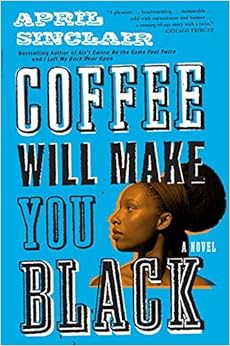
3. Coffee Will Make You Black by April Sinclair
“I still thought breasts might be more trouble than they were worth. Growing up reminded me a little bit of Hide and Go Seek. When it was your time to grow up, Natrue said, “Here I come, ready or not.” And Nature could always find you.”
Chills. I get chills thinking about the first time I read this book. 1960’s Chicago. Black is Beautiful. To be or not to be popular. To be or not to be friends with a White woman, with a lesbian. Am I a lesbian? I’m telling you. I picked this book up at 15-years-old and my entire world was rocked. I read it again at 18 and 21 and 25 and 30. This story may seem monotone to some, but it questioned things that I had questioned and refused to acknowledge when I was that age. Who, at some point it time, didn’t want some type of popularity — some recognition for who they are and that who they are is cool? Then eventually, we learn that popularity has it’s price. Not to mention trying to figure out sex in the midst of all of that. This book was the first book that I had ever read about a Black girl questioning her sexuality and attraction towards both men and women. I believe this is a book that needs to be on every Black girl’s bookshelf at some point in her life.

4. Ain’t Gonna Be The Same Fool Twice by April Sinclair
The sequel to Coffee Will Make You Black, because we don’t just turn 18 and grow the eff up over night. If you’re lucky enough to keep living, your responsibility is to keep growing. That’s my opinion, at least. Grow and grow and grow. In the second book, Stevi does exactly that. She grows into herself, a self that is able to love and be loved by both men and women. A self that learns that relationships, no matter who they are with, aren’t easy and don’t always turn out the way you think they should. 1975 San Francisco is a world unlike many and Sinclair gives us insight into this Black woman’s life adventure. If you’re looking to find all of the answers in either one of these books, than look somewhere else. Sinclair leaves room for her characters to grow and mess up and grow and mess up again. Such is life. Grab both of these books and take the journey.
5. Their Eyes Were Watching God by Zora Neale Hurston
“She didn’t read books so she didn’t know that she was the world and the heavens boiled down to a drop.”
*Content Note: domestic violence*
Fight me if you want to. You will lose. Their Eyes Were Watching God is most certainly a coming-of-age story that doesn’t get the shine it needs. It may not come to mind first when thinking of this genre, but jump outside of that box, forget that Halle Berry ever tried it and listen to Janie. Janie is growing up in rural Florida in the early 1900’s, let’s say 1920’s or 30’s. You may think that you have nothing in common with a woman of this time, but if you have ever had a grandmother that raised or helped to raise you; if you have ever been in a relationship for the sake of being in a relationship; if you have ever fallen in love this book is for you. And the HATERS!!!!! Ahhhh! Janie goes through, believe me. This sistah is all heart and soul on a patchwork sleeve and she just can’t seem to win for losing. I don’t even want to say much else about it. I’m not giving away the plot. Pick up the book. NO! Better yet, get your behind over to Audible and you download this book that is narrated by the incomparable soul of Ms. Ruby Dee and you will thank me for years to come. I promise, listening to this book will be the BLACKEST thing you have ever done. Go on… what are you waiting for? Go get that Black Girl Magic!

6. The House on Mango Street by Sandra Cisneros
“I have begun my own quiet war. Simple. Sure. I am one who leaves the table like a man, without putting back the chair or picking up the plate.”
*Content Note: sexual assault*
We all grow up. We all deal with sex, but there is a hyper-sexualization of cis-gendered girls that happens around puberty and makes life almost unbearable. It’s as if every move you make is seductive and you don’t even know it. If and when you decide to define your sexuality for yourself, like Esperanza, in a masculine-male dominated world, you’re forced to continue that path or take a new one. Every decision comes with a price and every dream doesn’t come with a real-life example. Esperanza just wants to be free. Free to make her own home on her own terms, free to live her own life with or without kids. She wants to be free to think and feel and speak and act as her own person. Don’t we all? Join her on Mango Street.
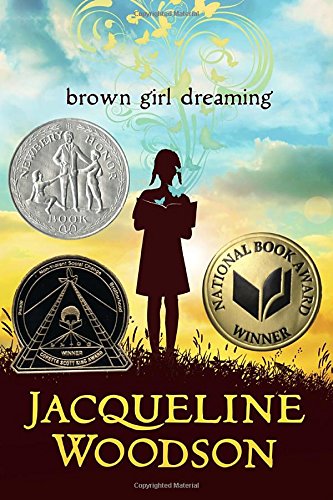
7. Brown Girl Dreaming by Jacqueline Woodson
“We are not afraid to die, Maria and I shout, fists high, for what we believe in.
But both of us know-we’d rather keep believing and live.”
*Content Note: racism*
Ohio-native Woodson describes her life as a code-switching Black girl being raised in the 60’s between the North and the South. It is a coming-of-age story woven together in bite-sized narratives with the rhythm of a double-dutch rhyme. I love this author and I love this book. I wish…. oh, how I wish that this book was available when I was growing up. Representation means so much. It’s hard to see yourself when you don’t have many examples of who you think you are becoming. Black. Writer. Curious. Strong. Full of all of the feelings. Many people of color, and I’d like to think that every Black person, has a memory associated with the Civil Rights Movement even if we weren’t there. How can you not? Our parents, grandparents, this author, and others grew into freedom. Black Panthers and free lunches, wars, protests, and raised fists. Jacqueline gives us a glimpse into this and I can’t read a page of it without thinking of my mother and the stories of her youth. I love Jacqueline for many reasons and this book is just the icing on the cake for me.
I tried my best to give you my favorite coming of age stories. Some of these titles stay tried and true and others ebb and flow with my mood and my own life. Don’t worry about being too grown to enjoy these books. If you’re reading this, its not too late… you’re growing and learning and evolving still. Sometimes, we all need a little reminder of the child within us and of the adult that we once dreamed of becoming.
Are you following Black Nerd Problems on Twitter, Facebook, Tumblr or Google+?


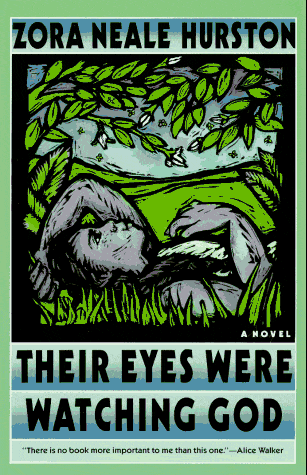
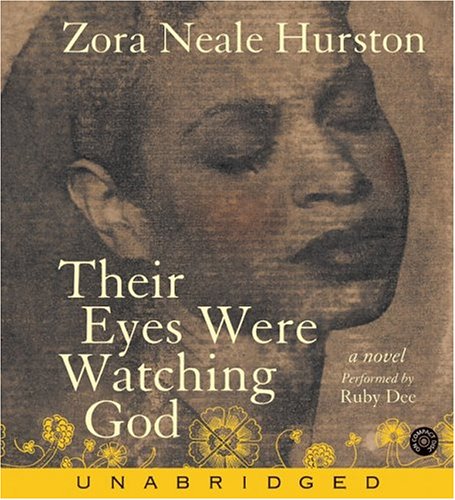
Show Comments